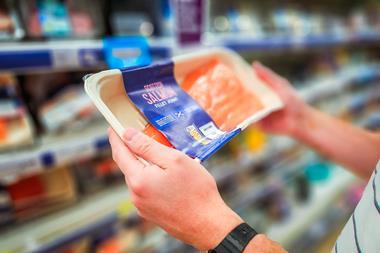
A decade on from the horsemeat scandal, the industry is in the midst of another potentially bigger and more serious crime wave.
Food fraud accounts for up to 25% of food safety incidents globally, and it’s costing our industry approximately €30bn annually. In 2022 alone, around 600 cases of suspected food fraud were reported by the EU Food Fraud Network.
At a recent event for Campden BRI members, experts from across the food supply chain highlighted a growing catalogue of incidents including misrepresenting ingredients, mislabelling, tampering, or bulking otherwise genuine products with other ingredients.
Other threats include illegal processing, misrepresentation, falsifying documents, substituting an inferior substance or product, adulterating with foreign substances not on the product’s label, and waste diversion.
There’s more bad news: climate change, war and unethical corporate leadership mean food fraud is only going to get worse. Threats of a political, economic, sociological, technological, legal and environmental (or ‘PESTLE’) nature all need to be considered.
Poor harvests due to climate change mean crop issues are becoming more frequent. Suppliers are battling increasingly tight margins and retailer expectations. In these high-pressure situations, food crime can quickly become an escape route from economic pressures.
More recently, the war in the Ukraine has contributed to food insecurity. Ukraine is the world’s biggest exporter of sunflower oil, responsible for 55% of the world’s supply over the past decade. So as the conflict began, global prices for cereals, sunflower oil and fertiliser reached record highs. With supply routes out of the country disrupted, sunflower oil is still particularly prone to adulteration.
In times of skyrocketing prices, food fraud is never far away. But ultimately, food fraud is a conscious decision made by individuals to transgress ethical boundaries, either for personal gain or on behalf of their company. Those implicated in these frauds, predominantly criminal food professionals – rather than professional criminals – are governed by the prevailing culture and environment in which they operate.
Research presented at our event reveals the ethical corporate culture of a business is a proxy measure of fraud. A weak culture can potentially create a climate in which illicit activities flourish.
This means producers need to protect themselves with effective management processes and monitoring. Verification and control measures must be regularly reviewed and updated in line with the changing threats. Crucially, business leaders must ensure they create a culture that places integrity and honesty at the core of the organisation.
Read more:
-
Grocemania future in doubt after £20k fraud
-
Three men sentenced for defrauding 2 Sisters in £320k theft case
-
FSA pledges to improve approach following meat fraud scandal
-
Food fraud ‘alive and well’ as news of beef fraud probe emerges
Without these controls, businesses leave themselves vulnerable to adulteration and other fraudulent behaviour.
Predicting where and when these instances will happen may not be a case of finding a needle in a haystack, either. Given the correlation between economic uncertainty and the prevalence of food crime, it’s entirely possible to develop robust risk management strategies to combat potential issues in times of increased financial pressure.
Predicting which foods are more likely to fall prey to food crime is also possible. For example, fish and seafood are prime targets. Indeed, from 2010 to 2012, a fraud investigation by Oceana USA, one of the largest of its kind, uncovered that 44% of sampled US retail outlets sold mislabelled fish, while 74% of sushi outlets and 38% of restaurants sampled were similarly affected.
Dairy and meat are also high on the list, alongside a variety of oils, such as virgin olive oil falsely labelled as extra virgin olive oil. Equally, organic foods, milk, grains, honey, maple syrup, coffee, tea, spices, wine and certain fruit juices are at risk of adulteration.
While much of this activity may seem relatively benign, more sinister examples of food fraud include adulterating cumin spice using crushed peanut shells. Given the relatively high incidence of peanut allergies worldwide, the results of food adulteration can be serious – often fraudsters will not have the knowledge to understand the food safety consequences of their fraud, or may not care.
Ultimately, the industry’s management systems, monitoring plans and control measures must be constantly reviewed and updated to cope with the changing landscape of food crime if the sector is to combat food crime effectively in all its forms.



















No comments yet